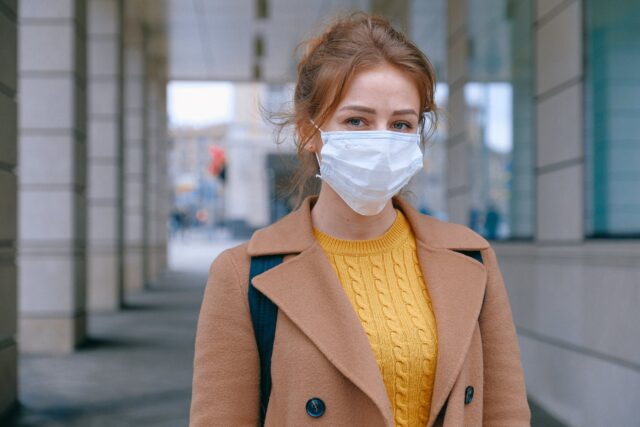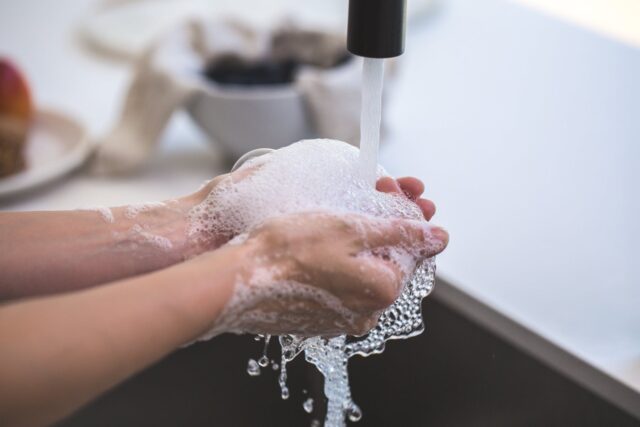
The COVID-19 pandemic is unlike anything most of us have experienced before. There have been pandemics in the past, but none that have resulted in a nearly global shutdown. Many of us have already been stuck at home for weeks. Meanwhile, we wait for word that the virus is slowing. Is there anything we can do in the meantime?
Vivint Smart Home encourages consumers to do what they can to make their homes as safe as possible. From preventing the virus from getting into the home to stopping its spread when family members do get sick, there are many things we can do.
Prepare a Plan of Action
The CDC recommends that families prepare a plan of action. The goal is to be prepared in case the virus hits your local community. A good place to start is to talk to every member of the household in a group setting. It is a good idea to:

- Make decisions in advance so that no one is caught off guard
- Learn how to protect and support sick children and seniors
- Come up with ways to cope with the stress of being stuck at home.
A plan of action is especially important in light of the fact that caring for a sick family member could be challenging. Plans should be made to seek professional medical care for family members who become seriously ill. Whether that means getting the person to the hospital, an after-hours clinic, or the family physician. The CDC also recommends learning to recognize the symptoms of COVID-19, just in case.
Reach out to Neighbors

Believe it or not, making your home as safe as possible includes reaching out to neighbors. This pandemic is such that we all have to lean on one another during this time. If your family all comes down with the virus with moderate symptoms, you might need the help of your neighbors to do what needs to be done.
By the same token, your neighbors might need to call on you for assistance. So reach out and talk to them. Even if you do it over the phone or through video chat. Do your best to make sure you and all of your neighbors are on the same page.
Create an Emergency Contact List
Families should prepare for the fact that a household emergency might arise. It is important to put together an emergency contact list now, before such a situation presents itself. Every member of the household should be familiar with the list. Those capable of contacting those on the list should be fully prepared to do so.
An emergency contact list should include healthcare providers, the local health department, employers, family members, and anyone else the household feels is important.
Inventory Cleaning Supplies

One of the best ways to stop the spread of coronavirus is to practice diligent cleanliness. In order to do so, it is necessary to inventory cleaning supplies. Make sure you have enough on hand to get you through at least several weeks. The key is to have disinfectants capable of killing germs on contact.
Disinfectant hand wipes are also helpful. However, they are not a substitute for regular hand washing. More on that in a minute. In terms of cleaning, the CDC recommends frequently cleaning touched surfaces and objects. In other words, those things your hands routinely come in contact with should be cleaned on a daily basis.
Plan to clean countertops, doorknobs, tables, light switches, etc. Dirty surfaces should be cleaned with warm water and detergent prior to disinfecting. If you want information about the kinds of disinfectants you can use at home, check out the CDC website.
Practice Proper Hygiene

We have been told time and again how important hygiene is during situations like this. First and foremost, wash your hands with hot water and soap regularly. Wash for 20 seconds or more, giving the soap plenty of time to lather up. Remember that it is the latter that removes the virus from the hands.
It is also important to avoid touching your face as much as possible. Why? Because any virus on your hands can be transferred to your face and then inhaled when you breathe. Along the same lines, never cough or sneeze into the open air. Cover your mouth with your hand, a tissue, or a handkerchief.
After you cough or sneeze, wash your hands. Do not risk the possibility of spreading the virus as an asymptomatic carrier.
Isolate at Home If You’re Sick
The hardest part about making your home as safe as possible is separating yourself if you are sick. It is difficult enough for entire families to be stuck at home for weeks at a time; it’s even more difficult if you are the only sick family member and you must be isolated.
Self-isolation means staying as far away from family members as possible. If that means staying in a closed room, seriously consider it. At least maintain 6 feet of separation at the very minimum. Also practice all the other hygiene tips mentioned in this article.
Utilize Your Smart Home System

If you have a smart home system installed, utilize it as long as stay-at-home orders are in place. If you’re ordering food to be delivered, you can use your Vivint video doorbell to let the driver know to leave it on the porch. You can use your exterior video cameras to keep an eye on the outside of your house, as well. Not that you are expecting trouble, but crime is still a possibility during the crisis.
COVID-19 has absolutely upended life as we know it. Things will eventually get back to normal, but it is going to take some time. While we wait, it’s up to all of us to do what we can to fight the spread of this virus. Making our homes as safe as possible may be the only thing we can do, at least individually speaking, for the next several weeks.









